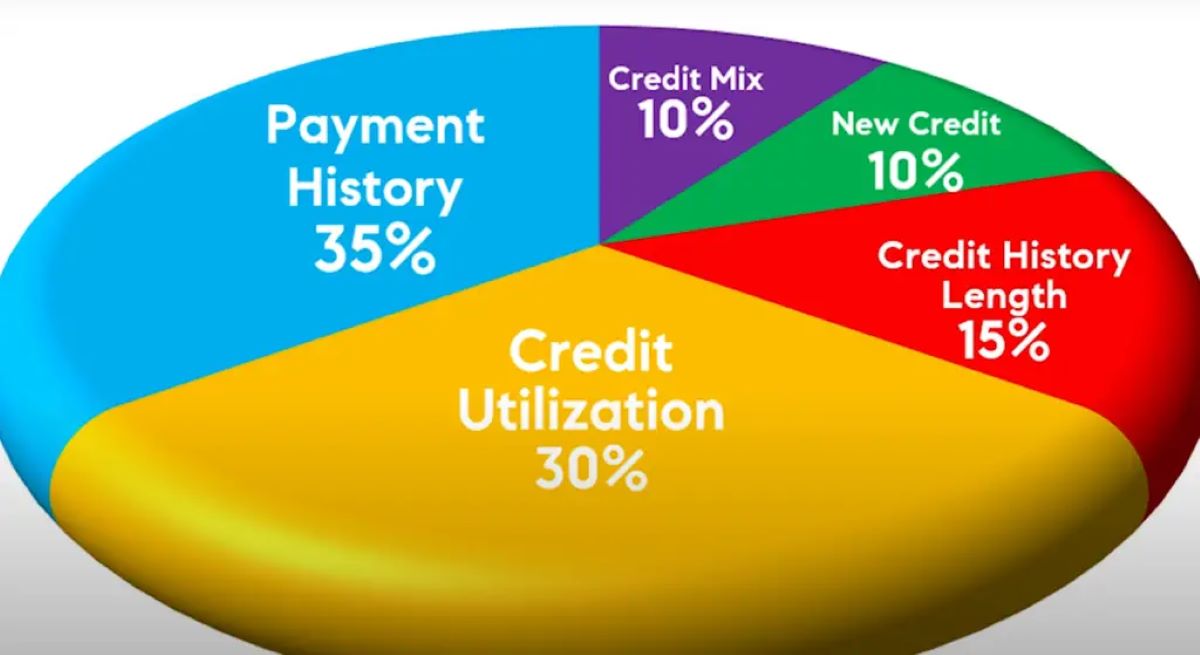

Finance
How To Market Bookkeeping Services
Modified: December 30, 2023
Looking to market your bookkeeping services? Learn effective strategies and techniques to promote your Finance expertise and attract more clients.
(Many of the links in this article redirect to a specific reviewed product. Your purchase of these products through affiliate links helps to generate commission for LiveWell, at no extra cost. Learn more)
Table of Contents
- Introduction
- Understanding the Bookkeeping Industry
- Identifying Target Audience
- Creating a Marketing Plan
- Developing a Strong Brand
- Building an Online Presence
- Utilizing Social Media
- Networking and Building Relationships
- Content Marketing Strategies
- Utilizing Email Marketing
- Providing Exceptional Customer Service
- Ask for Customer Reviews and Referrals
- Measuring and Analyzing Marketing Efforts
- Conclusion
Introduction
The bookkeeping industry plays a crucial role in helping businesses manage their financial records and maintain accurate financial data. However, with a growing number of bookkeeping service providers entering the market, it is becoming increasingly important for businesses in this industry to stand out and differentiate themselves from the competition through effective marketing strategies.
In this article, we will explore key strategies and techniques to effectively market bookkeeping services and attract potential clients. By understanding the unique aspects of the bookkeeping industry and implementing targeted marketing initiatives, bookkeeping service providers can increase their visibility, establish a strong brand presence, and ultimately drive business growth.
Whether you are a new bookkeeping service provider looking to establish your presence in the market or an existing provider seeking to expand your client base, this article will provide valuable insights and practical tips to help you market your bookkeeping services effectively.
It is important to note that marketing is not a one-time effort; it requires consistent and ongoing commitment. By implementing the strategies discussed in this article, you can create a comprehensive marketing plan that will enable you to reach your target audience, build brand awareness, and generate quality leads.
Now, let’s dive into the key aspects of marketing bookkeeping services and explore how you can effectively promote your business in this competitive industry.
Understanding the Bookkeeping Industry
Before diving into marketing strategies, it is essential to have a solid understanding of the bookkeeping industry. Bookkeeping involves the systematic recording, organizing, and analyzing of financial transactions for businesses. Accuracy and attention to detail are paramount in bookkeeping to ensure financial records are complete and in compliance with legal and regulatory requirements.
The bookkeeping industry is diverse, catering to various types of businesses, including small businesses, startups, freelancers, and large corporations. Bookkeepers may specialize in specific industries such as retail, hospitality, healthcare, or technology. Understanding the complexities and nuances of specific industries can help bookkeeping service providers tailor their marketing efforts and target their ideal clients.
It is also important to stay up to date with the latest advancements in bookkeeping technology and software. Bookkeepers rely on accounting software to streamline their processes, making it essential to stay abreast of technological developments in the industry. Incorporating the use of advanced software and technology into your marketing message can demonstrate your commitment to staying current and delivering efficient bookkeeping services.
Additionally, bookkeeping services may differ in terms of service offerings. While some providers focus solely on basic bookkeeping tasks such as recording income and expenses, others offer more comprehensive services like financial analysis, budgeting, and financial reporting. Understanding your unique value proposition and the services you offer can help you effectively market to your target audience.
Moreover, it is important to be aware of the regulatory requirements that govern the bookkeeping industry. Bookkeepers are typically required to comply with tax regulations, financial reporting standards, and data protection laws. Stay informed about these regulations to ensure your marketing materials and practices are compliant, which can enhance your credibility and trustworthiness among potential clients.
By gaining a comprehensive understanding of the bookkeeping industry, including its diverse clientele, technological advancements, range of services, and regulatory landscape, you can position yourself as a knowledgeable and reliable bookkeeping service provider. This knowledge will inform your marketing strategies and enable you to target the right audience effectively.
Identifying Target Audience
Identifying your target audience is a crucial step in developing a successful marketing plan for your bookkeeping services. When you have a clear understanding of who your ideal clients are, you can tailor your messaging, choose the right marketing channels, and effectively reach out to potential customers.
One way to identify your target audience is by analyzing your existing client base. Look for common characteristics among your current clients, such as their industry, size of business, specific bookkeeping needs, and pain points. This analysis will help you identify trends and patterns that can guide your marketing efforts.
Another approach is to conduct market research. Research the market to uncover the needs, challenges, and preferences of businesses in need of bookkeeping services. This can be done through surveys, interviews, or by studying industry reports and publications.
Developing buyer personas can also be helpful in identifying your target audience. A buyer persona is a fictional representation of your ideal client, incorporating demographic information, job role, pain points, goals, and motivations. Creating detailed buyer personas will enable you to better understand your target audience’s needs and create personalized marketing messages that resonate with them.
Furthermore, consider the geographic location of your target audience. Are you targeting local businesses or do you offer virtual bookkeeping services to clients around the world? Understanding the geographic scope of your target audience will help you choose the appropriate marketing channels and strategies.
Once you have identified your target audience, focus on positioning yourself as the solution to their specific bookkeeping needs. Highlight your expertise in their industry, showcase the benefits you offer, and communicate how your services can address their pain points. By aligning your marketing efforts with the needs and preferences of your target audience, you will be more likely to attract qualified leads who are in search of bookkeeping services.
Remember, identifying your target audience is an ongoing process. As your business evolves and your client base expands, you may need to refine your target audience and adjust your marketing strategies accordingly.
Creating a Marketing Plan
A well-defined marketing plan is essential for effectively promoting your bookkeeping services and reaching your target audience. It helps you outline your marketing objectives, identify the strategies and tactics you will employ, and allocate resources efficiently. Here are the key steps to create a comprehensive marketing plan:
1. Set Clear Goals: Determine what you want to achieve with your marketing efforts. Do you want to increase brand awareness, generate leads, or secure new clients? Setting specific, measurable, achievable, relevant, and time-bound (SMART) goals will provide focus and direction for your marketing activities.
2. Know Your Unique Selling Proposition (USP): Identify and clearly articulate what sets your bookkeeping services apart from the competition. Highlight your unique strengths, expertise, and value proposition that makes you stand out.
3. Identify Marketing Channels: Choose the marketing channels that are most likely to reach your target audience effectively. This may include a combination of online and offline strategies such as website, social media, email marketing, networking events, and industry-specific publications.
4. Develop a Content Strategy: Content marketing is a powerful tool for showcasing your expertise and providing value to your target audience. Create informative blog posts, e-books, case studies, and videos that address common pain points and demonstrate your knowledge in the field.
5. Utilize Search Engine Optimization (SEO): Implement SEO techniques to improve your visibility in search engine results pages. Identify relevant keywords related to bookkeeping services and incorporate them strategically into your website content, blog posts, and meta tags.
6. Allocate Budget and Resources: Determine the budget you can allocate to your marketing efforts and allocate resources accordingly. Consider investing in professional graphic design, copywriting, and marketing tools to create visually appealing and compelling marketing materials.
7. Create a Marketing Calendar: Develop a marketing calendar to outline the timing and frequency of your marketing activities. This will help you stay organized, consistent, and ensure that you engage with your target audience regularly.
8. Monitor and Evaluate: Regularly monitor and evaluate the performance of your marketing efforts. Track metrics such as website traffic, social media engagement, lead conversions, and client acquisition to gauge the effectiveness of your strategies. Make necessary adjustments based on the insights gained.
9. Stay Informed: Keep up with industry trends, changes in technology, and evolving marketing strategies. Attend industry conferences, webinars, and workshops to stay ahead of the curve and continuously improve your marketing approach.
By creating a comprehensive marketing plan, you can lay the foundation for successful promotion of your bookkeeping services. It will guide your marketing activities, ensure consistency, and maximize your chances of reaching and engaging with your target audience effectively.
Developing a Strong Brand
In the competitive bookkeeping industry, developing a strong brand is crucial for standing out and attracting potential clients. A strong brand creates trust, conveys professionalism, and differentiates your bookkeeping services from competitors. Here are some key steps to developing a strong brand for your bookkeeping business:
1. Clarify Your Brand Identity: Define your brand identity by determining your mission, values, and unique positioning in the market. Clearly articulate what sets your bookkeeping services apart and how you can add value to your clients.
2. Create a Compelling Brand Story: Craft a compelling brand story that resonates with your target audience. Share the story of your journey, the challenges you’ve overcome, and how your expertise can benefit your clients.
3. Design a Memorable Logo and Visual Identity: Invest in professional logo design and create a visually appealing brand identity. Ensure your logo and brand colors are consistent across all marketing materials to create a cohesive and recognizable brand presence.
4. Develop a Consistent Brand Voice: A consistent brand voice across all communication channels helps to create brand recognition and trust. Determine the tone and style of your brand and use it consistently in all your marketing materials, including website content, social media posts, and customer communications.
5. Emphasize Customer Benefits: Clearly communicate the benefits your bookkeeping services provide to clients. Focus on how you can help them save time, reduce stress, improve financial accuracy, and make informed business decisions.
6. Establish Thought Leadership: Position yourself as a thought leader in the bookkeeping industry by sharing your expertise through informative blog posts, guest articles in industry publications, and speaking engagements. This can boost your credibility and attract potential clients.
7. Build Strong Customer Relationships: Offer exceptional customer service to build strong relationships with your clients. Promptly respond to inquiries, be proactive in anticipating their needs, and go the extra mile to exceed their expectations.
8. Engage on Social Media: Utilize social media platforms to engage with your target audience and showcase your expertise. Share valuable content, participate in relevant discussions, and respond to comments and messages promptly.
9. Encourage Client Testimonials: Request testimonials from satisfied clients and prominently display them on your website and marketing materials. Positive reviews and testimonials can serve as social proof and build trust with potential clients.
10. Monitor and Protect Your Online Reputation: Regularly monitor online reviews and mentions of your brand to address any negative feedback promptly. Respond professionally and take steps to resolve any client concerns to protect and uphold your brand reputation.
By implementing these strategies, you can develop a strong and differentiated brand for your bookkeeping services. A strong brand will help you establish credibility, attract potential clients, and foster long-term relationships with your existing clients.
Building an Online Presence
In today’s digital age, having a strong online presence is imperative for marketing bookkeeping services. An online presence allows you to reach a wider audience, showcase your expertise, and engage with potential clients. Here are key steps to building an effective online presence:
1. Professional Website: Create a professional website that reflects your brand identity and showcases your bookkeeping services. Ensure your website is visually appealing, user-friendly, and provides clear information about your offerings, contact details, and testimonials.
2. Search Engine Optimization (SEO): Optimize your website for search engines to improve its visibility in search results. Conduct keyword research, optimize your content with relevant keywords, and focus on creating high-quality, informative content that aligns with your target audience’s search queries.
3. Engaging Blog: Start a blog on your website to provide valuable content related to bookkeeping. Share insights, tips, industry updates, and best practices to position yourself as an industry expert and attract organic traffic to your website.
4. Email Marketing: Build an email list of clients, prospects, and interested individuals. Send regular newsletters with valuable content, updates, and promotions. Provide an option for people to subscribe on your website and include lead magnets to incentivize sign-ups.
5. Social Media Platforms: Utilize social media platforms relevant to your target audience, such as LinkedIn, Facebook, or Instagram, to engage with prospects and showcase your expertise. Share informative content, interact with followers, and participate in industry discussions.
6. Online Directories: Register your bookkeeping service in online directories specific to the finance industry. This can increase your visibility and make it easier for potential clients to find you when searching for bookkeeping services.
7. Pay-per-Click (PPC) Advertising: Consider running targeted PPC advertising campaigns on platforms like Google Ads or social media platforms. This can boost your visibility and drive traffic to your website. Set a budget and monitor the campaigns to ensure they are cost-effective.
8. Online Communities and Forums: Join relevant online communities, forums, or industry-specific groups where potential clients may be seeking advice or recommendations. Engage in discussions, answer questions, and establish yourself as a helpful resource.
9. Online Reviews and Testimonials: Encourage satisfied clients to leave reviews and testimonials on platforms like Google My Business, Yelp, or your website. Positive reviews can help build trust and credibility, influencing potential clients to choose your bookkeeping services.
10. Monitor and Respond: Regularly monitor your online presence and respond to any comments, messages, or reviews promptly. Address any concerns professionally to demonstrate your commitment to customer satisfaction.
By implementing these strategies, you can establish a strong online presence for your bookkeeping services. This will help you reach a wider audience, build credibility, and attract potential clients who are searching for reliable bookkeeping services online.
Utilizing Social Media
Social media platforms have become powerful tools for businesses to connect with their target audience and promote their services. By utilizing social media effectively, bookkeeping service providers can increase brand visibility, engage with potential clients, and establish credibility. Here are key strategies for utilizing social media in your marketing efforts:
1. Choose the Right Platforms: Research and identify the social media platforms that are most relevant to your target audience. LinkedIn is a popular platform for professional networking, while Facebook and Instagram can be effective for reaching a broader consumer audience. Focus your efforts on the platforms where your ideal clients are most active.
2. Establish a Consistent Brand Presence: Create branded social media profiles that reflect your bookkeeping business. Use consistent branding elements such as your logo, brand colors, and tone of voice across all your social media platforms. This will help build brand recognition and establish a cohesive online presence.
3. Share Valuable Content: Provide informative and relevant content that can benefit your target audience. Share tips on financial management, tax planning, or bookkeeping best practices. This positions you as a knowledgeable resource and can help attract followers who are interested in your expertise.
4. Engage with Your Audience: Actively engage with your followers by responding to comments, messages, and questions in a timely manner. Encourage discussions by asking questions, seeking input, and providing valuable insights. Engaging with your audience fosters a sense of connection and builds trust.
5. Utilize Visual Content: Social media platforms thrive on visual content. Showcase your expertise and highlight your bookkeeping services through visually appealing graphics, images, and videos. Infographics, tutorial videos, or before-and-after case studies can be highly engaging and shareable.
6. Leverage Hashtags: Research and use relevant hashtags in your social media posts to extend your reach and make your content more discoverable. Hashtags related to bookkeeping, accounting, finance, or small business can help you connect with a broader audience interested in these topics.
7. Run Targeted Ad Campaigns: Consider running targeted advertising campaigns on social media platforms to reach a specific audience segment. You can set parameters such as location, demographics, interests, and behaviors to ensure your ads are shown to the most relevant audience.
8. Monitor Analytics: Regularly monitor social media analytics to understand which content performs well, what resonates with your audience, and how you can improve your social media strategy. Use these insights to adjust your content and engagement strategies for better results.
9. Collaborate with Influencers or Partners: Consider collaborating with influencers or complementary businesses in the finance industry. Partnering with influencers or engaging in cross-promotions can expand your reach and introduce your bookkeeping services to a wider audience.
10. Stay Consistent: Consistency is key in social media marketing. Post regularly, maintain an active presence, and stay consistent with your messaging and branding. Establishing a consistent presence will help you build trust and retain your audience’s attention.
By utilizing social media effectively, bookkeeping service providers can connect with potential clients, demonstrate their expertise, and establish a strong online presence. Implement these strategies, and continually adapt and refine your social media approach to achieve the best results for your bookkeeping business.
Networking and Building Relationships
Networking and building relationships are imperative for any bookkeeping service provider looking to grow their business. By connecting with potential clients, industry professionals, and referral sources, you can expand your reach, gain valuable insights, and establish trust. Here are key strategies for effective networking and relationship building:
1. Attend Industry Events: Participate in industry events, conferences, and trade shows to meet potential clients and other professionals in the finance industry. Engage in conversations, exchange contact information, and follow up with individuals afterward.
2. Join Professional Organizations: Become a member of professional organizations, such as local Chambers of Commerce or industry-specific associations. These organizations offer networking opportunities, workshops, and events where you can connect with like-minded professionals.
3. Build a Strong LinkedIn Profile: LinkedIn is a powerful platform for professional networking. Build a strong profile that highlights your expertise, experience, and bookkeeping services. Connect with industry professionals, join relevant groups, and actively engage in discussions.
4. Offer Value First: When networking, focus on offering value and building relationships rather than making immediate sales pitches. Listen actively, understand others’ needs, and offer helpful insights or resources. This approach helps establish trust and makes you a reliable resource in the eyes of potential clients.
5. Seek Referral Partnerships: Identify professionals who serve similar target clients, such as accountants, business consultants, or financial advisors. Establish referral partnerships where you can refer clients to each other, expanding your reach and credibility.
6. Host Workshops or Webinars: Share your expertise by hosting workshops or webinars on relevant topics, such as tax planning for small businesses or financial record-keeping best practices. These events provide opportunities to showcase your knowledge and build connections with attendees.
7. Engage in Online Forums: Participate in online forums or discussion groups related to bookkeeping, accounting, or small business finance. Offer valuable insights, answer questions, and engage with other professionals or small business owners. This helps to establish yourself as a knowledgeable resource and provides an avenue for connecting with potential clients.
8. Establish Personal Connections: Building strong relationships requires personal connections. Take the time to get to know potential clients or referral partners on a personal level. Listen attentively, show genuine interest, and remember key details about their business or personal life.
9. Follow up and Nurture Relationships: After making initial connections, follow up with individuals to express gratitude for the conversation and continue building the relationship. Regularly stay in touch through email updates, social media interactions, or occasional meetups.
10. Be a Reliable Resource: Position yourself as a reliable resource by consistently providing valuable insights, industry updates, or helpful resources to your network. This positions you as an expert in your field and fosters trust with potential clients and referral sources.
By actively networking and building relationships, you can expand your professional network, increase referrals, and attract potential clients to your bookkeeping services. Implement these strategies consistently, and prioritize building genuine connections that will serve you well in the long run.
Content Marketing Strategies
Content marketing is a powerful strategy for attracting and engaging potential clients in the bookkeeping industry. By creating and sharing valuable content, you can establish yourself as a trusted authority, build brand awareness, and drive traffic to your website. Here are key content marketing strategies for bookkeeping service providers:
1. Blogging: Start a blog on your website and regularly publish informative and educational articles related to bookkeeping, finance, or tax topics. Address common pain points, provide tips and advice, and share industry insights to showcase your expertise and attract organic traffic to your website.
2. E-books or Guides: Create e-books or guides on specific bookkeeping topics to offer in-depth information and valuable resources. Promote these resources through your website, social media, and email marketing to capture leads and establish yourself as a resourceful expert.
3. Case Studies: Share success stories or case studies that highlight how your bookkeeping services have helped clients achieve financial success. Showcase the challenges faced, the strategies implemented, and the positive outcomes to demonstrate the value you can provide.
4. Videos and Tutorials: Create videos or tutorials that visually explain complex bookkeeping concepts or demonstrate how to use accounting software. Visual content is engaging and can effectively educate your audience while showcasing your expertise.
5. Social Media Content: Create bite-sized content for social media platforms. Share quick tips, interesting statistics, or small business financial insights to spark engagement and drive traffic back to your website or blog for more comprehensive content.
6. Webinars or Online Workshops: Conduct webinars or online workshops on bookkeeping-related topics. Offer valuable insights, provide practical advice, and answer participants’ questions. These interactive sessions allow you to showcase your expertise and engage with potential clients directly.
7. Infographics: Use visual content like infographics to present complex financial information in a visually appealing and easily digestible format. Infographics are highly shareable and can help increase your brand’s visibility and reach on social media platforms.
8. Guest Posting: Contribute guest articles to industry-specific blogs or publications. This allows you to tap into established audiences, expand your reach, and position yourself as an authority in the bookkeeping field.
9. Client Testimonials and Case Studies: Showcase client testimonials and case studies on your website and social media platforms. This social proof can build trust and confidence in your services, strengthening your brand reputation.
10. Email Newsletters: Send regular newsletters to your email subscribers, providing them with valuable content, industry updates, and insights. Keep your audience informed and engaged, and include calls to action to encourage them to reach out or explore your services further.
Remember, consistency is key in content marketing. Develop a content calendar, stay consistent in publishing valuable content, and promote it through various channels to maximize your reach and engagement. Adapt and refine your content strategy based on audience feedback and analytics to continuously enhance your content marketing efforts.
Utilizing Email Marketing
Email marketing is a powerful tool for bookkeeping service providers to nurture relationships, engage with potential clients, and drive conversions. It allows you to stay top of mind with your audience, deliver valuable content, and promote your services. Here are key strategies for utilizing email marketing effectively:
1. Build an Email List: Start by building a targeted email list of potential clients, interested individuals, and existing clients. Offer incentives such as valuable resources or exclusive content to encourage sign-ups on your website or through lead generation campaigns.
2. Segment Your Email List: Segment your email list based on relevant criteria such as client type, industry, or interests. This allows you to tailor your email content and offers to specific segments, increasing relevance and engagement.
3. Personalize Your Emails: Use personalization techniques to make your emails more personalized and engaging. Address recipients by their first name and include dynamic content based on their specific interests or previous interactions.
4. Provide Valuable Content: Deliver valuable and relevant content in your emails. Share industry insights, offer helpful tips and resources, or provide exclusive access to educational materials. Focus on providing value rather than solely promoting your services.
5. Automate Email Campaigns: Utilize email automation tools to set up automated campaigns. This can include welcoming new subscribers, nurturing leads, or sending follow-up emails after specific actions, such as downloading a resource from your website.
6. Promote Your Services: While providing valuable content, don’t forget to promote your bookkeeping services in your emails. Include information about your service offerings, case studies, testimonials, or limited-time offers to encourage conversions.
7. Use Catchy Subject Lines: Grab the attention of your recipients by crafting catchy and compelling subject lines. The subject line should be concise, intriguing, and give a glimpse of what the email content entails to entice recipients to open it.
8. Include Clear Call-to-Actions (CTAs): Include clear and prominent CTAs in your emails. Whether it’s guiding recipients to schedule a consultation, requesting a quote, or signing up for a webinar, make it easy for them to take the desired action.
9. Test and Measure Results: Continuously test different elements of your email campaigns, such as subject lines, content, CTAs, and sending times. Monitor key metrics like open rates, click-through rates, and conversions to understand what resonates best with your audience.
10. Comply with Privacy Regulations: Ensure compliance with data protection and privacy regulations. Obtain consent from subscribers before sending them emails, provide an easy opt-out option, and handle personal data securely and responsibly.
By utilizing email marketing effectively, bookkeeping service providers can build relationships, nurture leads, and drive conversions. Implement these strategies thoughtfully, ensuring that your emails are valuable, personalized, and aligned with your audience’s needs and preferences.
Providing Exceptional Customer Service
Exceptional customer service is vital for bookkeeping service providers to build strong relationships, retain clients, and generate positive word-of-mouth referrals. By delivering outstanding customer service, you can differentiate yourself from competitors and create long-term client loyalty. Here are key strategies for providing exceptional customer service:
1. Maintain Responsiveness: Respond to client inquiries, emails, and phone calls promptly. Aim to acknowledge and address their concerns or questions within 24 hours, demonstrating your commitment to excellent communication.
2. Listen and Understand: Actively listen to your clients’ needs and challenges. Take the time to understand their unique requirements and provide tailored solutions that meet their specific bookkeeping needs.
3. Stay Knowledgeable: Stay up-to-date with the latest trends, regulations, and developments in the bookkeeping industry. Continuously expand your knowledge and skills to provide informed advice and maintain a high level of professionalism.
4. Attention to Detail: Pay close attention to detail when handling financial records and transactions. Accuracy is essential in bookkeeping, and by demonstrating meticulousness, you will instill confidence and trust in your clients.
5. Set Clear Expectations: Clearly outline the scope of your services, deliverables, and timelines to manage client expectations effectively. Be transparent about fees and any additional charges to avoid misunderstandings and ensure a smooth working relationship.
6. Regularly Communicate: Maintain regular communication with clients, providing updates on their financial records, milestones, or any other relevant information. Proactive communication demonstrates your attentiveness and commitment to their business’s financial success.
7. Go the Extra Mile: Look for ways to go beyond the expected in serving your clients. Offer additional resources or insights, provide guidance beyond bookkeeping, and be proactive in identifying areas where you can add value to their business.
8. Seek Feedback: Actively seek feedback from your clients on their experience working with your bookkeeping services. Regularly ask for their input, and use their feedback to improve your processes, service offerings, and overall customer experience.
9. Resolve Issues Promptly: In the event of any issues or errors, take immediate responsibility and work towards resolving them promptly. Your willingness to address concerns demonstrates your commitment to your clients’ satisfaction and helps maintain trust and confidence.
10. Treat Clients as Partners: Foster a partnership mindset by treating your clients as valued partners rather than just customers. Understand their business goals and challenges, offer proactive advice, and demonstrate your dedication to their success.
Exceptional customer service goes beyond delivering accurate bookkeeping services; it involves building strong relationships, providing personalized attention, and exceeding expectations. By prioritizing exceptional customer service, you can build a reputation for excellence and secure long-term client loyalty.
Ask for Customer Reviews and Referrals
Customer reviews and referrals are powerful marketing tools for bookkeeping service providers. Positive reviews and referrals not only enhance your credibility but also attract new clients. Here are effective strategies to ask for customer reviews and referrals:
1. Provide Excellent Service: Offer exceptional bookkeeping services that exceed your clients’ expectations. When you consistently deliver outstanding results and exceptional customer service, clients are more likely to provide positive reviews and refer your services to others.
2. Timing is Key: Ask for reviews and referrals when your clients are most satisfied with your work. This can be after successfully completing a project, meeting financial goals, or providing exceptional support during a critical phase of their business.
3. Personalize Your Request: Customize your request for reviews and referrals based on your relationship with each client. Tailor your message and explain the value their feedback or referral can bring to your business, such as helping other businesses find reliable bookkeeping services.
4. Simplify the Process: Make it easy and convenient for clients to leave reviews and provide referrals. Provide direct links or buttons to review sites on your website or in your communications. Streamline the referral process by offering a simple form or template that clients can use to refer others.
5. Follow-Up Emails: Send follow-up emails after completing a project or achieving significant milestones. Express gratitude for their partnership and kindly ask if they would be willing to share their experience in a review or refer your services to their network.
6. Incentivize Referrals: Consider offering incentives as a token of appreciation for clients who refer new customers to your bookkeeping services. This could be a discount on future services, a gift card, or a referral rewards program.
7. Showcase Testimonials: Display client testimonials prominently on your website, social media platforms, and marketing materials. Showcasing positive feedback from satisfied clients acts as social proof and encourages others to trust and engage with your services.
8. Engage on Review Sites: Regularly monitor online review sites such as Google My Business or industry-specific platforms. Respond promptly and professionally to all reviews, whether positive or negative. By engaging in dialogue, you can show potential clients your commitment to exceptional customer service.
9. Thank and Acknowledge Referrals: When clients refer others to your bookkeeping services, make sure to express your gratitude. Send personalized thank-you messages or small tokens of appreciation to acknowledge their efforts in spreading the word about your business.
10. Provide a Seamless Experience: Continually strive to provide a seamless experience for your clients throughout their entire journey with your bookkeeping services. When clients have an effortless and positive experience, they are more likely to provide glowing reviews and recommend your services to others.
By actively asking for customer reviews and referrals, you can harness the power of word-of-mouth marketing and social proof. Positive reviews and referrals from satisfied clients will strengthen your brand reputation, attract new clients, and contribute to the growth of your bookkeeping business.
Measuring and Analyzing Marketing Efforts
Measuring and analyzing your marketing efforts is crucial for bookkeeping service providers to understand the effectiveness of their strategies and make data-driven decisions. By evaluating key metrics and analyzing the results, you can optimize your marketing approach and maximize your return on investment. Here are important steps to measure and analyze your marketing efforts:
1. Define Key Performance Indicators (KPIs): Identify the specific metrics and KPIs that align with your marketing goals. This could include website traffic, conversion rates, social media engagement, lead generation, or client acquisition.
2. Set Baseline Metrics: Establish baseline metrics to benchmark your current performance. This provides a starting point for measuring the impact of your marketing efforts over time.
3. Track Website Analytics: Utilize tools like Google Analytics to monitor website traffic, user behavior, and conversion rates. Analyze data such as page views, bounce rates, time on site, and goal completion to understand how visitors interact with your website.
4. Measure Social Media Engagement: Track metrics such as followers, likes, comments, shares, and click-through rates on your social media platforms. Analyze which types of content resonate the most with your audience and adjust your social media strategy accordingly.
5. Monitor Email Marketing Success: Keep an eye on email marketing metrics, such as open rates, click-through rates, and conversion rates. Analyze which email campaigns perform best and iterate on your messaging and offering based on the results.
6. Assess Lead Generation: Measure the success of your lead generation efforts by tracking the number and quality of leads generated through various channels. Analyze which lead generation tactics yield the highest conversion rates and focus on optimizing those channels.
7. Evaluate Conversion Rates: Analyze conversion rates at different stages of your marketing funnel, from website visitors to leads and clients. Identify bottlenecks or areas of improvement to optimize your conversion process.
8. Use A/B Testing: Test different variations of your marketing campaigns, landing pages, or email content through A/B testing. Compare the performance of each variation to identify the most effective strategies for improving results.
9. Solicit Client Feedback: Regularly seek feedback from clients about their experience with your marketing efforts. Conduct surveys or interviews to gain insights into what resonated with them and what could be improved.
10. Regularly Review and Adjust: Set aside time to review your marketing analytics on a regular basis. Analyze the data, identify trends, and make data-driven adjustments to your marketing strategies to optimize performance and achieve better results.
By measuring and analyzing your marketing efforts, you can gain valuable insights into what works well and what requires improvement. This enables you to make informed decisions, refine your approach, and achieve greater success in marketing your bookkeeping services.
Conclusion
Effective marketing strategies are essential for bookkeeping service providers to stand out in a competitive industry, reach their target audience, and drive business growth. By implementing the strategies outlined in this article, you can create a comprehensive marketing plan that will enable you to market your bookkeeping services effectively and attract potential clients.
Understanding the unique aspects of the bookkeeping industry, identifying your target audience, and developing a strong brand forms the foundation of your marketing efforts. Building an online presence, utilizing social media, and providing exceptional customer service are key strategies that will help you connect with your audience, establish credibility, and foster long-term relationships with your clients.
Content marketing, email marketing, and asking for customer reviews and referrals are effective techniques for attracting clients, showcasing your expertise, and building a strong reputation. Monitoring and analyzing your marketing efforts ensures that you can measure the success of your strategies, make data-driven decisions, and continuously optimize your marketing approach.
Remember, successful marketing is an ongoing process that requires dedication, adaptability, and a focus on providing value to your clients. By implementing the strategies outlined in this article, you can position your bookkeeping services for success, differentiate yourself from the competition, and achieve sustainable business growth.
So, take the information provided in this article, tailor it to your specific business needs, and embark on your journey to effectively market your bookkeeping services. With a well-rounded marketing plan in place, you will be well-equipped to attract potential clients, build strong relationships, and thrive in the bookkeeping industry.














